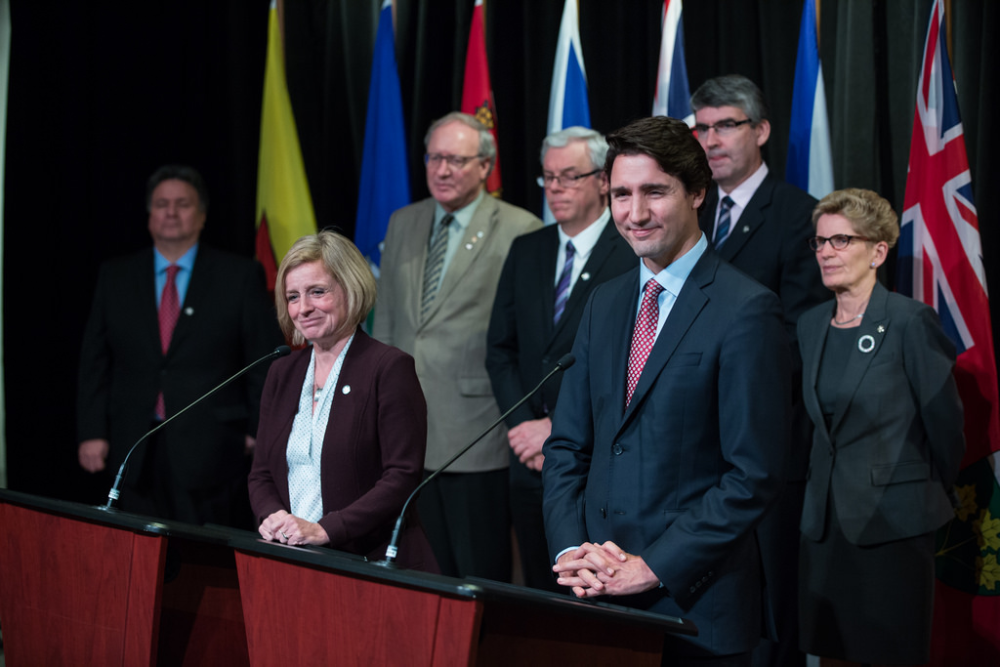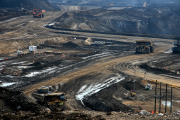There’s nothing like an international summit to focus the mind. Or so you might assume, if you’ve read the headlines on climate action across Canada in the months leading to the United Nations climate conference in Paris.
For Canadians who pay attention to the growing threat of climate change, this renewed focus is welcome. Indeed, we’ll likely look back on 2015 as the year Canada ran out of political leaders making excuses not to act climate change.
The political and social shifts required for genuine progress have emerged: the decade-long Keystone XL battle demonstrated that citizens expect government to better integrate climate risks into their decision making, a global wave of carbon-pricing announcements made our Canadian inaction all the more egregious, and federal antagonism on climate change was replaced with optimism on Oct. 19.
And solutions have emerged in Alberta, too: The province’s new leaders have recognized that inaction on climate change severely damaged Alberta’s international reputation and the economic prospects of its oil and gas industry. The province again made headlines around the world recently — but this time, it was for its unprecedented policy shift on climate change.
Like B.C. before it, Alberta will introduce an economywide carbon price, starting at $20 per tonne in 2017 and increasing to $30 per tonne in 2018. In spite of its current high use of coal-fired power, the province will phase it out and replace two-thirds of it with renewable electricity, a measure that will bring down emissions while also improving local air quality and saving hundreds of millions in health-care costs.
Alberta is also set to cut oil-and-gas methane emissions nearly in half in the next 10 years, generating emissions benefits that approach that of its coal phase-out while promoting the deployment of the best available technologies in the oil and gas sector. The oilsands emissions limit will give the world certainty that its emissions will not grow unchecked. For a major energy-producing jurisdiction like Alberta, the climate package is a game changer, and will shift the debate about the province doing its part to address climate change.
Still, there’s much left to do. Climate science calls for deep emissions reductions, globally and at here at home, between now and 2050. While Alberta’s climate plan is robust and comprehensive, Alberta’s Climate Leadership Panel estimates these measures will stabilize carbon emissions by 2030 — meaning that, while pollution will no longer grow unabated, strengthened policies will be required with time. As Canada’s biggest emitter — accounting for close to 40 per cent of all Canadian emissions — Alberta must continually improve its policies to ensure its approach is commensurate to the scale of emissions reductions required.
The opportunity before us is formidable, and Alberta is not alone. More than ever, Canada’s federation is presenting a united front on climate change. With its announcement, Alberta joins the ranks of other Canadian jurisdictions, like Ontario, Quebec and B.C., which have recognized the pressing importance of new policies to combat climate change.
Critically, the federal government has also recognized the need to accelerate the pace of progress on emissions reductions across the country. To do so, it must move quickly on a policy framework that establishes minimum standards on carbon pricing, and ultimately knits piecemeal provincial action into a coherent and ambitious national plan. On their own, provincial climate commitments will not ensure Canada does its fair share to reduce emissions consistent with the science of global warming. More action on carbon pricing and other emissions-reductions policies will be required, and the federal government should ensure it plays an additive role.
The Paris summit may spur the global community toward new emissions-reductions targets, but translating that global ambition into real change at home will be left to our lawmakers alone. The federal government can take up that torch by accelerating national coal phase-out timelines, matching the Obama administration’s methane-reduction commitment, reducing emissions from buildings and transportation, and ensuring Canada replaces coal and oil with clean renewable energies.
Tonight, we’re in Paris, hosting Canada Night at COP21 — a reception that will celebrate 2015’s big climate wins, and the Canadian jurisdictions that made those policy transformations possible. But as the bright lights of Paris fade, we’ll continue to build momentum across society to ensure 2015 is seen as the catalyst, not the culmination, of Canada’s climate progress. We look forward to the ways in which Alberta will be a central part of that progress. Within six months, we have seen Alberta go from a policy laggard to a leader. We expect our new federal government to rise to the challenge in a similar way.
Sidney Ribaux is co-founder and executive director of Équiterre, Tim Gray is executive director of Environmental Defence, and Ed Whittingham is executive director of the Pembina Institute.







